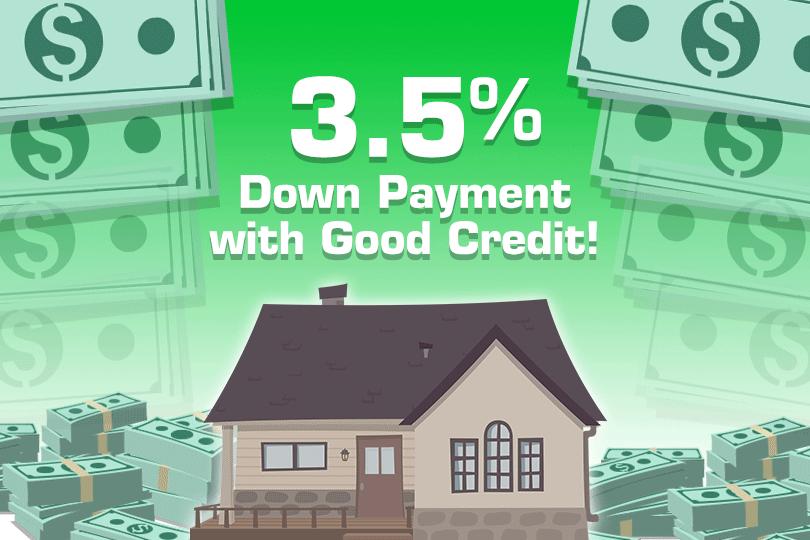What to Know About Down Payments
December 23, 2022
While down payments are one of the biggest obstacles for many in the mortgage process, it helps to understand the ins and outs of why they play such a big role.
Why Do Down Payments Matter?
Down payments go a long way in giving a lender peace of mind when loaning you a sizeable chunk of money for a home purchase. By putting money down on a home, you are assuring a lender that you intend to follow through on the loan to the best of your ability.
Additionally, the amount of money you are able to put down does not affect the interest rate you get from a lender, but it does play a part in how much you pay in interest over the life of the loan. That essentially means that the less you borrow, the less interest you’re paying on it. If your home costs $300,000, and you pay $40,000 down, you would be paying interest on $260,000. Whereas if you put only $20,000 down, you would be paying the same interest rate on a larger amount, making it amount to larger interest payments in total.
Down Payment Requirements
When shopping for a mortgage, the down payment requirements play a big role in your decision, so it helps to know what the conditions are for the different types of home loans.
For most conventional loans, borrowers must pay 20% of the purchase price. Since many first-time homebuyers find it difficult to afford such a large, upfront payment, conventional lenders tack on a monthly Private Mortgage Premium until the buyer is able to pay off 20% of the purchase price.
Since FHA loans are backed by the government, they have a lower down payment requirement of 3.5% of the purchase price. It is important to keep in mind that though the FHA has set this low limit, FHA-approved lenders can place “overlays” and place more stipulations.
Down Payment Assistance
While all this may seem daunting, keep in mind that there is a way to make saving easier. As a borrower, you should know that down payment assistance is available in three forms:
Down Payment Grants: State and municipal agencies and housing authorities have many programs for first-time and repeat homebuyers that can be put towards paying mortgage expenses like down payments and closing costs, without any repayment stipulations.
Second Mortgages: Some assistance programs are offered as a second mortgage with low- or zero-interest rates that need to be paid when the home is paid off, sold, or refinanced. Some loans are completely forgiven after a certain period of time.
MCC: A Mortgage Credit Certificate (MCC) is a tax credit issued by state or local government that allows a taxpayer to claim some portion of the mortgage interest paid. While this is not a tax deduction, it does provide a dollar-for-dollar tax credit to homebuyers for the interest paid during a given tax year.
Keep in mind that all these assistance programs come with their own eligibility criteria, and may be awarded to applicants based on income level, credit scores, occupation, etc.
------------------------------
RELATED VIDEOS:
You're Almost There When You Get Your Loan Approval
Learn About the Mortgage Insurance Premium (MIP)
Pre-approval Starts the Mortgage Process

FHA Loan Articles
February 17, 2025The federal government backs FHA home loans, which allows participating FHA lenders to offer lower down payment options and more lenient credit requirements. How much do you really know about your FHA home loan options and how they compare to other mortgage choices?
February 13, 2025For many college graduates, student loan debt is a concern. A common question is how this debt impacts the ability to buy a home. This Q&A explores the relationship between student loans and FHA loan approvals. How much do you know about how your student loan debt affects your ability to be approved for a mortgage?
February 12, 2025Choosing between FHA and conventional home loans can be daunting for some first-time home buyers. What are the concerns between these two programs, and what does each one offer the borrower? We examine some of the key issues in our question-and-answer session about FHA mortgages versus conventional loans.
February 11, 2025Established in 1934 as part of the National Housing Act, the FHA's primary mission is to stimulate the housing market by providing mortgage insurance to lenders. This insurance reduces the risk associated with lending to borrowers who may otherwise be considered higher risk, encouraging lenders to offer more favorable terms, such as lower down payments and more flexible credit requirements. A key element of the FHA program is its commitment to fair housing, which is deeply rooted in the Fair Housing Act.
February 10, 2025How much do you really know about the home buying process? One major factor in protecting your new investment is knowing how the title search process works and why you need to have one done. This quiz will assess your comprehension of what a title search entails, why it's so important when using an FHA loan, and how it protects you as a buyer. From identifying potential liens to guaranteeing clear ownership, a title search plays a critical role.







